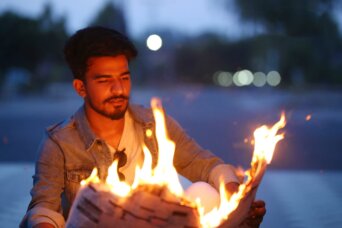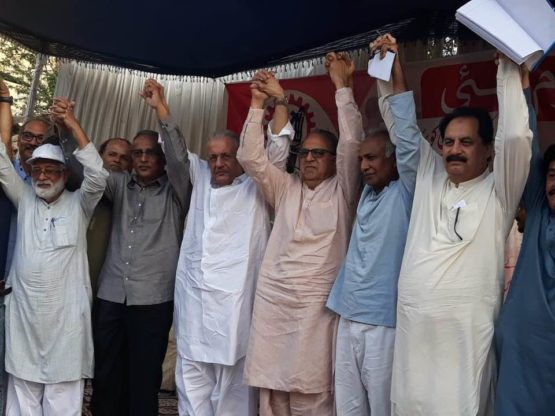- About
- Topics
- Story
- In-Depth
- Picks
- Opinion
- News
- Donate
- Signup for our newsletterOur Editors' Best Picks.Send
Read, Debate: Engage.
| topic: | Democracy |
|---|---|
| located: | Pakistan, India |
| editor: | Shadi Khan Saif |
Leading political parties, mainly from the opposition benches, unite in Pakistan for the apparent sake of constitutional supremacy in a country with a dark history of democratic principles.
With three years to go for the general polls, the newly established Pakistan Democratic Movement demands people’s vote should be given respect, and the military should stop interfering with the politics.
It is no more a secret that the country of over 200 million citizens had never actually managed to experience true democracy, particularly genuine civilian rule in key matters such as defence and foreign policy throughout its history, which are dominated by the generals.
In clear contrast to its twin neighbour India, military coups kept erupting in Pakistan with the first one lasting for 13 years (1958 – 71) followed by another one for 11 years (1977 – 88) and the last one for 9 years (1999 – 2008).
And, the results are evident in terms of many socio-economic indicators where Pakistan lags far behind.
Over recent years, however, the tried and tested approach by the powerful army to snatch power through force is replaced with ‘hybrid military rule’ as many observers call it. This is with an apparent democratically elected government in place only to toe the direction set and dictated by the men in uniform.
Under this tactic, the press is in hidden chains and the country is practically under rule by the deep state.
With all due respect for the drivers behind the genuine cause of the PDM, it is quite a paradox that individuals and parties uniting under this umbrella have themselves been used by the powerful army as tools to undermine each other, and eventually undermine the constitution for short-term gains.
Alleged financial corruption of mammoth scale by the country’s political elite has often been described as the reason to garner and prefer the military supremacy. The army generals too are not immune to corruption either, probably more so than the civilians given the leverage they have at their disposal to bulldoze regulations of all sorts and set rules to best suit them.
And, what has that done to the common people in Pakistan? Well, there is massive disparity among the wealthiest and the poorest with the top 10 of the population earning close to 30 per cent of all the wealth and the bottom 10 per cent with less than 5 per cent.
So, any cause for the civilian liberties and people’ power is welcomed for Pakistan, provided it is not elitist, but genuinely people-centric by the people and for the people.
Image by Maher Ahtsham

